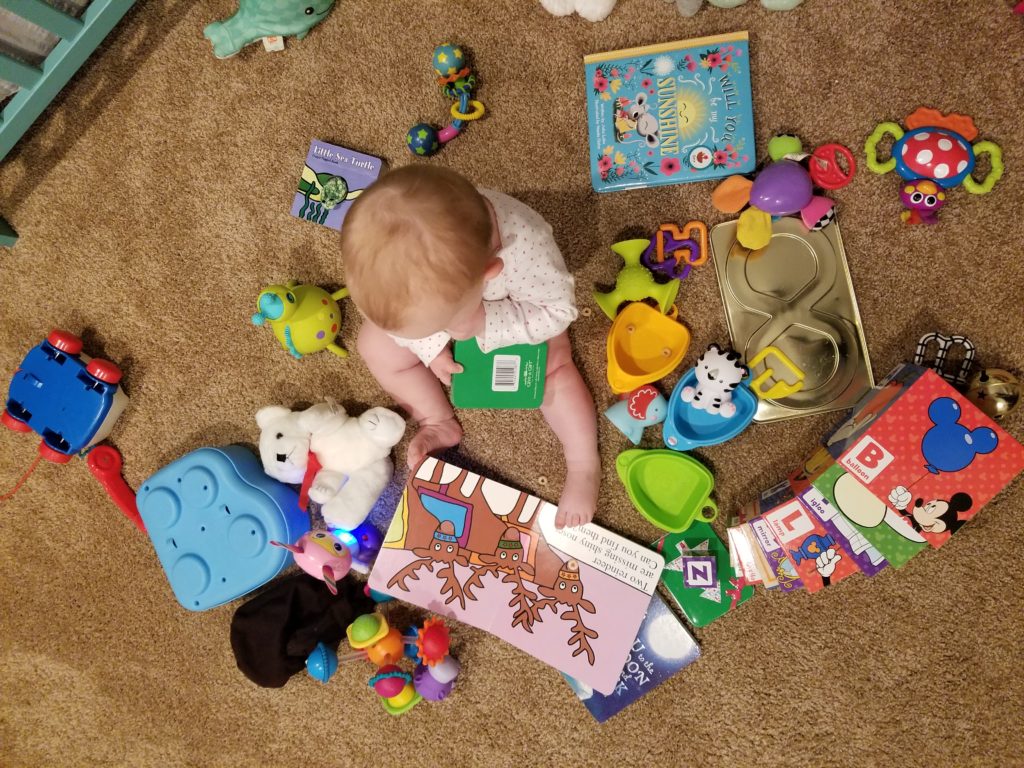
Some very informative studies have recently been published and the findings might surprise you. Studies were conducted comparing electronic toys to more conventional toys such as blocks, puzzles, and wooden tools and they found that adults were less responsive to children when the children were playing with electronic toys than other toys. The studies also showed less child vocalizations while the children play with electronic toys, up to 67 words per minute less to be exact. Why is this significant? Well, we know that early language development is critical to language and literacy skills later on, and the language a child has learned by 24 months is the greatest predictor of success in school and life in general.
The sad thing is that these electronic toys are marketed as “educational” and “developmental,” promising to help children learn important skills and reach developmental milestones, when actually, research is telling us that these toys do just the opposite. They impede learning and prevent positive language interactions between children, parents, and caregivers. Sosa who performed a similar study and had the same findings warns that playing with electronic toys results in not only a decrease in the quantity of language, but in the quality of language heard and spoken by children and in order to promote early language development, electronic toys should be strongly discouraged.
 So, what are we to do when our well-meaning Aunt buys our children electronic toys that promise to help them learn their ABC’s? Limit the time on these toys. Set a timer and allow only a few minutes per day, then counteract the use of these toys by reading your child a book. Ask questions while you read, engage them in the story, ask them how the story makes them feel.
So, what are we to do when our well-meaning Aunt buys our children electronic toys that promise to help them learn their ABC’s? Limit the time on these toys. Set a timer and allow only a few minutes per day, then counteract the use of these toys by reading your child a book. Ask questions while you read, engage them in the story, ask them how the story makes them feel.
Some simple electronic toys can be useful to teaching cause and effect if they make a noise when the baby pushes a button. Try to participate in the play with your baby and help him learn this skill.
As far as screen time, try to avoid all passive screen time. In other words, baby should not be sitting watching TV, Ipad, or phone alone. If she watches a screen for a few minutes, it would be better if you were beside her saying, “That’s big bird. He’s funny, isn’t he?”
References:
Sosa AV. Association of the Type of Toy Used During Play With the Quantity and Quality of Parent-Infant Communication. JAMA Pediatr. 2016;170(2):132–137. doi:10.1001/jamapediatrics.2015.3753
Stein, M. T. (2016). Do electronic toys affect language development? NEJM Journal Watch.Pediatrics & Adolescent Medicine, doi:http://dx.doi.org.ezproxy.philau.edu/10.1056/nejm-jw.NA40416
Zachary, A., (2014). Retro baby: Cut Back on all the Gear and Boost Your Baby’s Development with More than 100 Time-Tested Activities. American Academy of Pediatrics.

